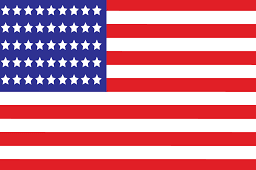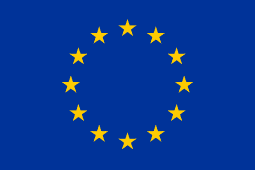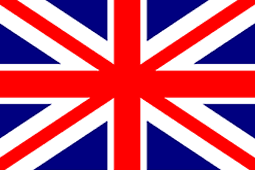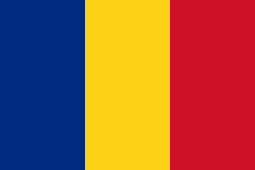Meet the Champions of the Ocean
Oceans occupy about 71 percent of Earth’s surface and yet, there is very little that we know about the deep seas. In fact, we know more about outer space than we know about our own oceans. Over the last few decades we have looked up to the stars and dreamt of exploring the unknown but, lest we forget, there’s a hidden universe right here on our planet! Only recently have scientists begun to fathom the scale of the deep blue and using modern technology slowly unravel its mysteries.
The ocean, however, is not just a fantasy realm for exploration, it is also the heartbeat of our planet, the reason why life exists on Earth and (as far as we know) does not anywhere else! Hence, while we learn more about it, it is also our duty to protect and preserve it! This blog is a recognition of some of the passionate souls at the forefront of ocean conservation and research in India.

India has been taking some big strides in Ocean conservation through government led initiatives as well as non-government organisations (NGOs). Wildlife Institute of India, National Institute of Ocean Technology, National Centre for Sustainable Coastal Management are some of the government bodies working on conservation and research around the oceans. There also have been many NGOs who have taken up the task of doing their bit to spread awareness and help conserve the marine environment. Reef Watch Marine Conservation, Society of Marine Research and Conservation, Coastal Impact, Wildlife Trust of India, are some NGOs working in the field of marine life conservation in India.
As a major economy with direct access to the Indian Ocean, the possibilities for Indian marine biologists are immense and we were fortunate enough to get to interact with a few young Indian marine biologists who are determined to take marine biology in India to the next level and leave a lasting imprint on the field.

Below are the profiles of a few marine biologists that we managed to interact with. We would be doing more of these interactions in the future and we would keep adding to this blog post as we talk to more marine biologists.
Prachi Hatkar: Being a wildlife enthusiast, Prachi Hatkar pursued her Post-graduate degree in zoology with a specialization in Oceanography and fishery science in India. After completing of her studies, she started her career as a researcher at the CSIR-National Institute of Oceanography.
She has experience in Marine ecology, Intertidal survey, Ecological survey of coral reef, Mangrove assessment, and marine monitoring projects like Environment Impact assessments. She continues to passionately pursue conservation for sea turtle conservation in her coastal state, Maharashtra. and has been accredited by National Accreditation Board for Education and Training (NABET) for Functional and Biodiversity expert (FAE) for Ecology and Biodiversity.
Now she has ventured into sea life by joining the recovery of a charismatic marine mammal (king of the sea)- Dugong to make a difference in marine life conservation. She is working on Dugong conservation in India in Wildlife Institute of India, and her Ph.D. is on seagrass associated fauna. Her current research interests include understanding the ecology of endangered species, diversity assessment of marine life, connecting the conserving ecosystem benefits along with livelihood.
Ashoi Dantra: Ashoi has a Bachelor's in Life Sciences and Biochemistry. Ashoi has always been very interested in marine sciences and while completing her bachelor's she realised that she would pursue her dreams of becoming a marine biologist. She has interned at IISc and volunteered at ReefWatch Marine Conservation. She is now gearing up to pursue her Master's in Marine Biology.
Marine Science has for long fascinated Ashoi and her experiences in the field have been nothing short of illuminating. Ashoi is passionate about conservation and fighting climate change, for “we are the eyes, ears and hands of all those suffering due to induced human pressure”. When Ashoi worked in remote parts of India, she found in her a fire difficult to extinguish – a yearning for more. She travelled extensively and found herself drawn to coastal ecology, creatures of the deep, marine organisms that inhabit the intertidal zones. It is indeed fascinating what one sees if they dare to look.
Her journey so far has been wonderful and she cannot wait to see what the future holds!
Chinmaya Ghanekar: Chinmaya Ghanekar is a Ph.D. student in Marine Biology at the Wildlife Institute of India, where she is working on the project CAMPA: Recovery of Dugongs and their Habitats in India. Her current focus of work is Dugongs, seagrasses and their associated fish.
Having a native in coastal Maharashtra, her parents always encouraged her to observe and admire wildlife. She pursued a Master's degree in Biodiversity to further her interest. She has now worked in a variety of habitats, including evergreen forests, plateaus, coasts, and seagrass beds. Her Ph.D. research involved direct underwater observations of fishes in seagrass areas of Palk Bay and the Gulf of Mannar in Tamil Nadu. For her Ph.D., she was awarded the prestigious DST-INSPIRE Fellowship. Outside work, she enjoys traveling, reading and singing.
Oceans are home to almost 80 percent of the planet’s biodiversity. Showing our support to the conservationists who are working really hard to conserve this biodiversity is the least that we can do on our part.
We can help their efforts by spreading awareness about marine species to begin with. The awareness about marine species and the need to conserve them is quite low in India. So you can start with spreading awareness among your friends, family and colleagues.
You can also reach out to them directly through email or Social media DMs.
To introduce your child to the wonders of the deep sea world, do check out Our Amazing Oceans Activity Kit. It is designed to take you on an exciting under water adventure where you will learn about our incredible oceans, discover different kinds of fascinating creatures and gain secret access to some amazing trivia.
You can get a copy of Our Amazing Oceans here.






